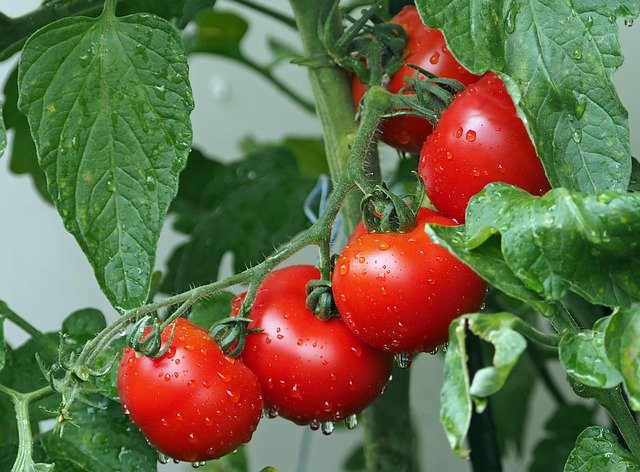June 9, 2021
By Lynda Kiernan-Stone, Global AgInvesting Media
Saudi Arabian agtech startup Red Sea Farms announced it has raised $10 million from a collective of leading Saudi and UAE investors to advance its one-of-a-kind technology for the commercial farming of crops using primarily salt water.
This investment reflects one of the largest agtech investments in the region to-date, and is emblematic of the growing interest by investors in the Gulf in sustainable farming solutions and technologies that can mitigate supply chain difficulties.
Leading the round was the Aramco entrepreneurship arm Wa’ed, the non-profit foundation Future Investment Initiative Institute (FII), KAUST, and UAE-based venture capital group Global Ventures – many of which are first-time agtech investors.
Based at King Abdullah University for Science and Technology (KAUST), 60 miles north of Jeddah, Red Sea Farms was launched in 2018 with a mission to reduce food insecurity, the carbon footprint, and water usage in both the Gulf and global food systems.
“KAUST is powering an emerging deep tech start-up ecosystem in Saudi Arabia – and Red Sea Farms is helping to drive this revolution,” said Kevin Cullen, vice president of innovation and economic development, KAUST. “The start-up is the product of many years of research in KAUST labs, now commercialized and ready to change the face of agriculture in the Middle East and other water-scarce regions.”
Using a patented system of cutting-edge, more efficient solar and growth monitoring technologies, Red Sea Farms replaces the fresh water typically used to cool greenhouses and irrigate crops with salt water, cutting fresh water consumption by 85-90 percent.
Currently the company is using a combination of plant selection, breeding, and grafting to produce non-GMO tomato root stock with the ability to grow in saltwater. The company is also conducting trials in Saudi Arabia and Egypt (it has experimented with growing purslane, sea asparagus, and strawberries, but tomatoes have been the most successful crop), and is selling its own brand of tomatoes on the Saudi Arabian market.
The company’s growing system is able to easily and quickly scale up in challenging geographies and climates such as the Middle East, where conventional food production is neither cost-effective, or in many cases, even possible.
Although advances in technology resulted in an increase in food production in the MENA region in the 1990s, the region was expected to see a food deficit of between 50 million tons and 90 million tons in 2020. As a result, indoor vegetable production in the Middle East region has been gaining traction with both investors and startups. This is notably true in the UAE, which currently imports as much as 85 percent of its fresh produce and therefore presents an arena of great potential growth.
Red Sea Farms currently runs a saltwater pilot greenhouse at the KAUST Research & Technology Part, and plans to use the capital from this round to build and retrofit more than six hectares of commercial farming operations in central and western Saudi Arabia.
“We are proud to have designed, developed, and delivered one of the world’s most sustainable agricultural systems from our base in Saudi Arabia,” said Ryan Lefers, CEO, Red Sea Farms, who co-founded the company with professor and chief scientist Mark Tester, and professor and chief engineer Derya Baran. “The investment from our new partners will help us improve global food security while reducing the carbon and fresh-water footprint.”
For the FII Institute, this capital commitment is its first in the agtech sector.
“Our investment in Red Sea Farms is an expression of FII- Institute’s mission to support initiatives and projects which will have a positive impact on humanity,” said Richard Attias, CEO, FII Institute. “Our trilogy strategy ‘Think-Xchange-Act’ empowers us to play a transformative role in the new impact economy. We are pleased to partner with the King Abdullah University for Science and Technology and leading investors to bring this revolutionary technology to market.”
Red Sea Farms had previously secured a $1.9 million investment in 2019 from the KAUST Innovation Fund and Research Product Development Company (RPDC), a wholly owned subsidiary of the Saudi Technology Development and Investment Company (TAQNIA). And the founders, Tester and Lefers, recently acquired Iyris Advanced Desert Greenhouses, a maker of smart glass that integrates solar technology and optical tuning developed by Baran, who became a third co-founder.
“We’re thrilled to partner with Red Sea Farms,” said Noor Sweid, general partner, Global Ventures. “With the earth’s resources depleting at an alarming rate, food and water security have become pressing global challenges. Powered by KAUST’s ecosystem of scientific and tech knowledge, Red Sea Farms is envisioning sustainable and innovative ways of addressing these issues in the region and the world, with the ultimate objective of leaving our planet better than we found it for the generations to come.”
– Lynda Kiernan-Stone is editor with GAI Media, and is managing editor and daily contributor for Global AgInvesting’s AgInvesting Weekly News and Agtech Intel News, as well as HighQuest Group’s Oilseed & Grain News. She can be reached at lkiernan@globalaginvesting.

Let GAI News inform your engagement in the agriculture sector.
GAI News provides crucial and timely news and insight to help you stay ahead of critical agricultural trends through free delivery of two weekly newsletters, Ag Investing Weekly and AgTech Intel.




